Types of Writing Teaching Resources
Explore the different types of writing with your students this school year with printable RACES writing strategy worksheets, constructed response activities, graphic organizers and more teacher resources created by teachers for teachers.
This collection of curriculum-aligned teaching resources has been carefully reviewed by our expert teaching team to make sure every resource is classroom-ready — so we can make your lesson planning easier!
New to teaching the types of writing, or just looking for new ways to engage your students? Read on for a primer from our teacher team!
What Are the Different Types of Writing? 4 Main Writing Genres to Share With Students
If you're introducing the different types of writing — or different genres of writing — to your students, it can help to have some basic descriptions of each type at hand. That's exactly what our teacher team has put together for you!
When we sit down to write any text, we have a goal for writing. Sometimes we're looking to tell a story. Sometimes we want to share information. Other times a piece of writing is created to persuade the reader.
The goal or purpose of a text, as well as its audience, helps us determine what type of writing we need to create.
There are many different genres of writing that students will encounter as readers and writers over their lifetimes, but let's start with the four main types of writing that we cover in elementary and middle school.
1. Narrative Writing
Narrative writers tell stories, making up characters and creating different settings for their readers. The goal of this type of writing is to entertain the reader.
2. Persuasive Writing
If you're trying to convince a reader of something, you'll need to engage in persuasive writing. This type involves trying to convince a reader to take a specific action or to agree with your point of view.
3. Descriptive Writing
When we want to describe something to a reader, the type of writing we create is called descriptive writing. In this genre, we use vivid details to paint a picture in the reader's mind.
4. Informative Writing
If your goal is to create a piece of text that provides the reader with facts or instructions about a specific topic, the type of writing to choose is informative writing.
- Plus Plan
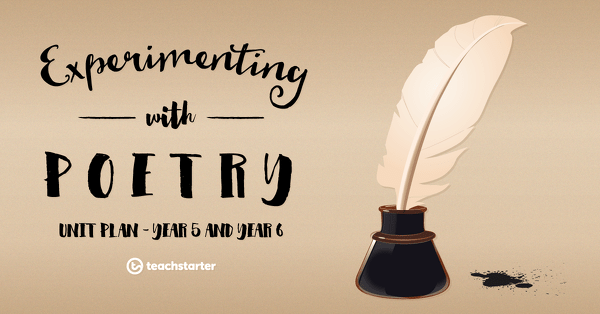
Concrete Poetry - Shape Poems
A 60 minute lesson in which students will plan and write a shape poem.
- Plus Plan
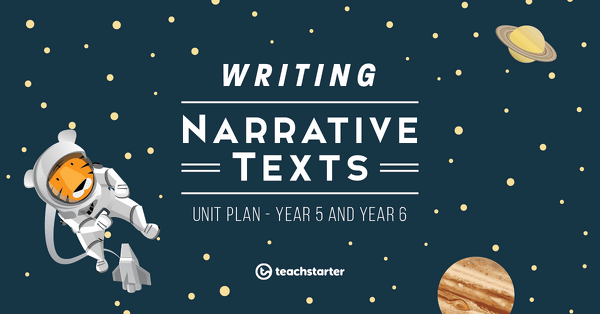
Narrative Texts - Language Features
A 60 minute lesson in which students will identify and explore the language features of narrative texts.
- Plus Plan
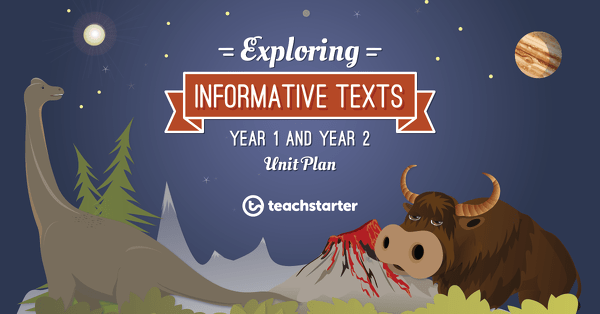
Informative Texts - Language Features
A 60 minute lesson in which students will identify and explore the language features of informative texts.
- Plus Plan
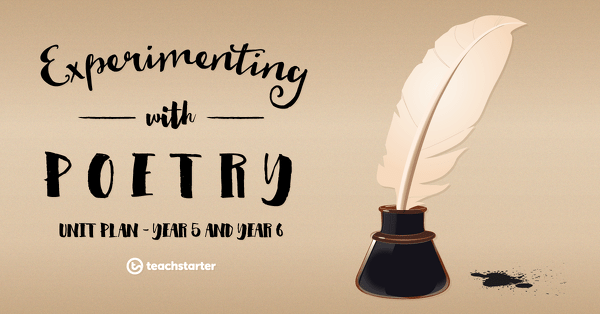
Forms of Poetry
A 60 minute lesson in which students will explore some well-known and commonly used forms of fixed verse.
- Plus Plan
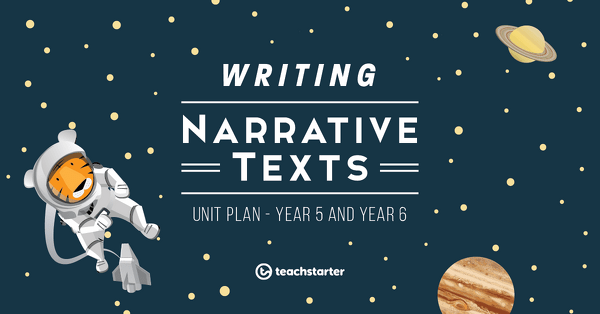
Narrative Texts - Text Structure
A 60 minute lesson in which students will identify and explore the structure of narrative texts.
- Plus Plan
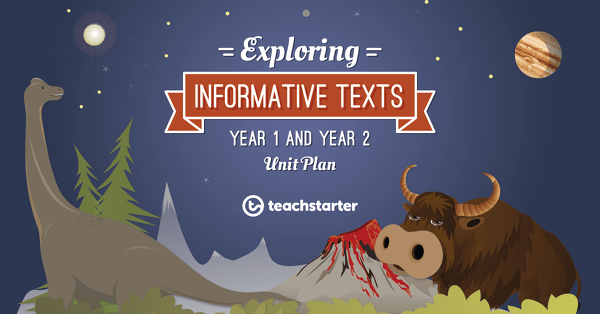
Informative Texts - Text Structure
A 60 minute lesson in which students will identify and explore the structure of information reports.
- Plus Plan
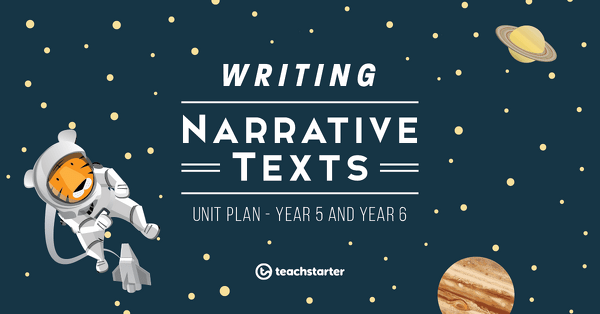
What's The Story With Stories?
- Plus Plan
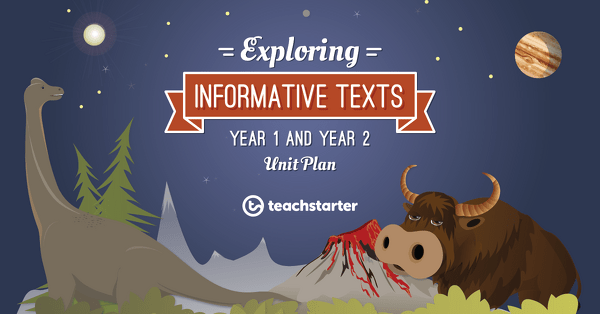
Just the Facts!
A 60 minute lesson in which students will use facts to describe people, places, animals and objects.
- Plus Plan
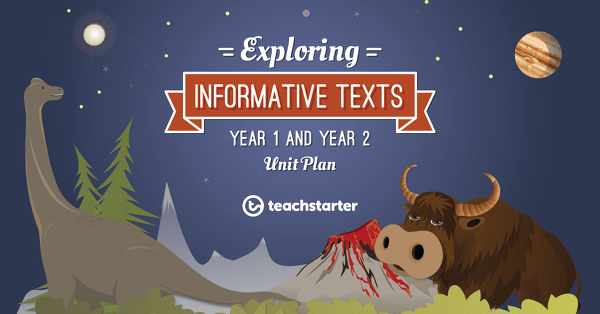
Fact or Opinion?
A 60 minute lesson in which students will identify the difference between a fact and an opinion.
- Plus Plan
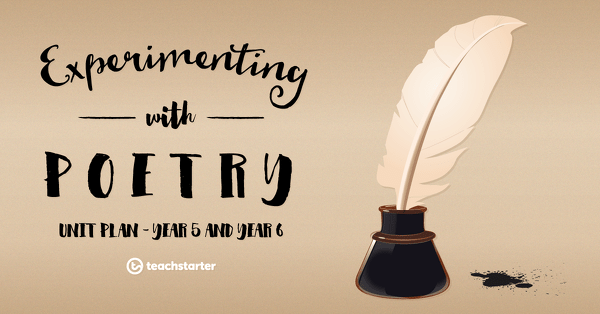
Figurative Language
A 60 minute lesson in which students will identify and investigate figurative language in poetry.
- Plus Plan
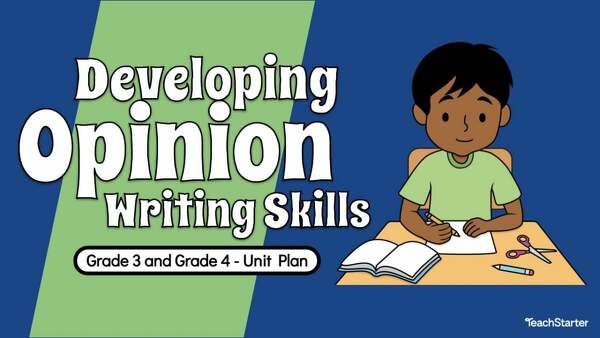
Applying Proofreading and Editing Skills
A 60 minute lesson in which students will learn and apply proofreading and editing skills.
- Plus Plan
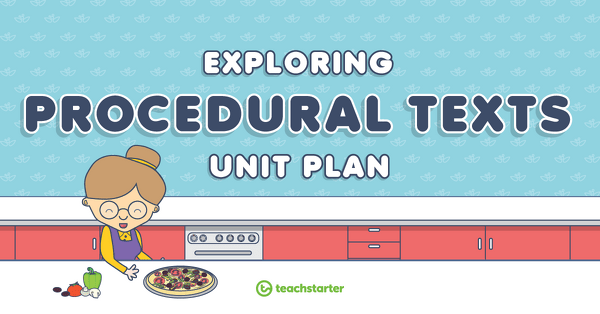
Publishing a Recipe Book
A 60 minute lesson in which students will publish a simple recipe for bush stew.
- Plus Plan
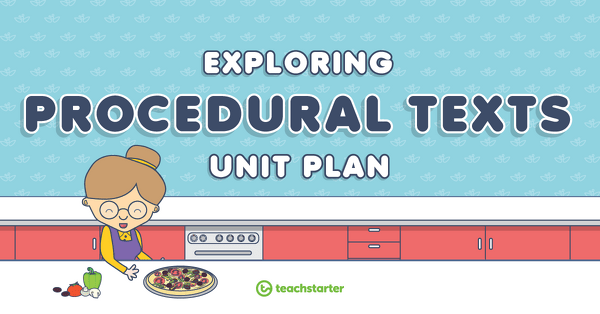
Independent Writing - How to Make Nature Stew
A 60 minute lesson in which students will independently write a recipe for nature stew.
- Plus Plan
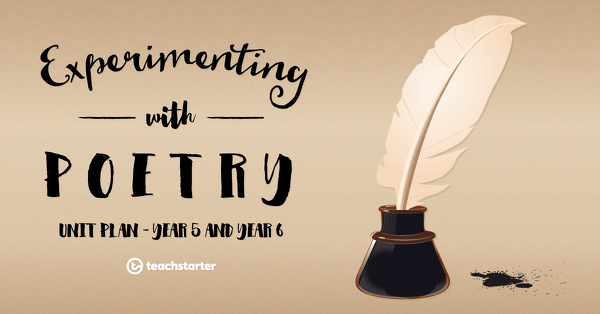
Structure, Rhyme and Rhythm
A 60 minute lesson in which students will identify and investigate structure, rhyme and rhythm in poetry.
- Plus Plan
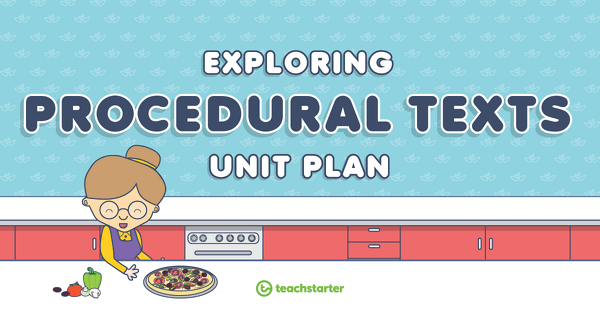
Guided Writing - How To Make Fruit Salad
A 60 minute lesson in which students will jointly construct a simple recipe for fruit salad in small groups.
- Free Plan
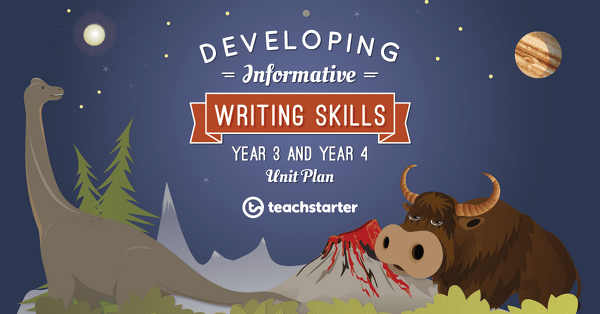
Using a Stimulus - Independent Writing
A 60-minute lesson in which students will independently write an informative text using appropriate text structure, language, and features.
- Plus Plan
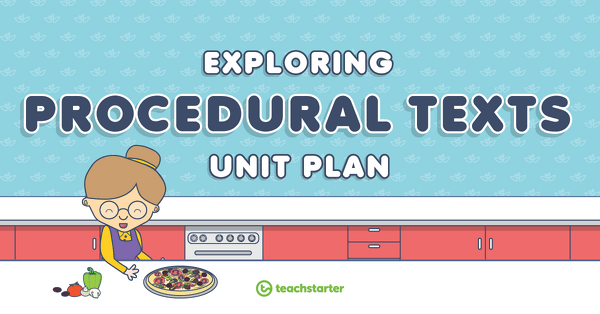
Modeled Writing - How to Wash a Woolly Mammoth
A 60 minute lesson in which students will jointly construct a simple procedure about a familiar experience.
- Plus Plan
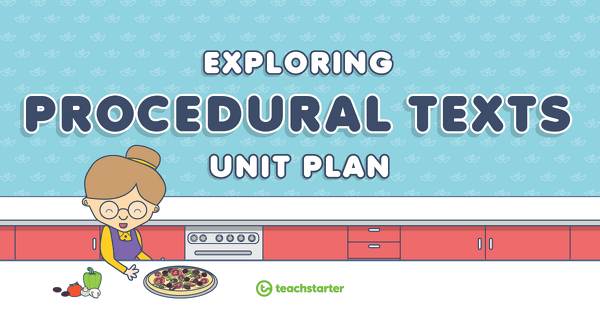
Procedural Texts - Language Features
A 60 minute lesson in which students will identify and explore the language features of procedures.
- Plus Plan
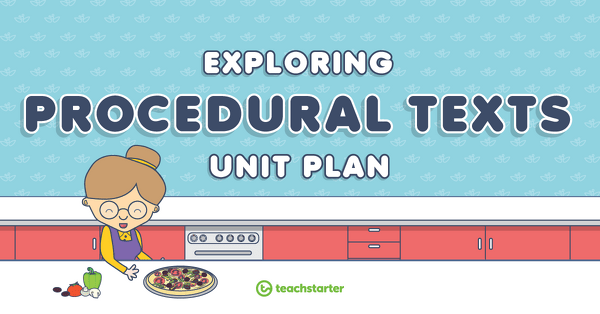
Procedural Texts - Text Structure
A 60 minute lesson in which students will identify and explore the structure of procedures.
- Plus Plan
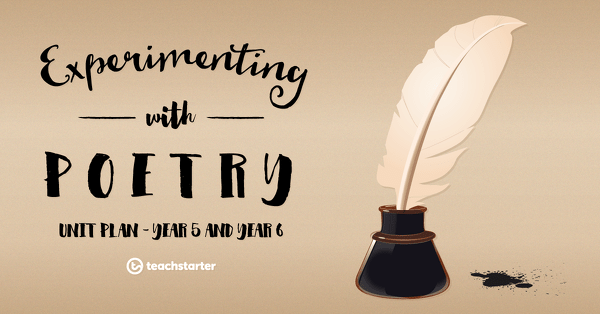
Elements of Poetry
A 60 minute lesson in which students will explore the common elements found in poetry.
- Plus Plan
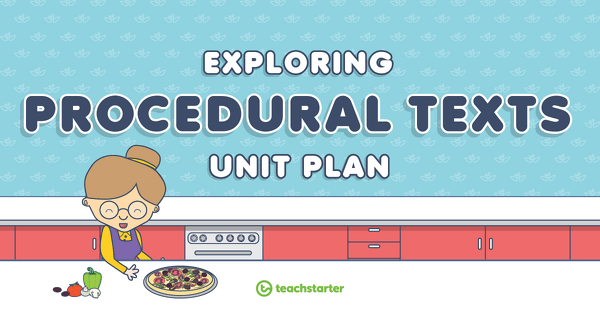
Instruct Me!
A 60 minute lesson in which students will explore how procedures provide instructions about completing a task.
- Free Plan
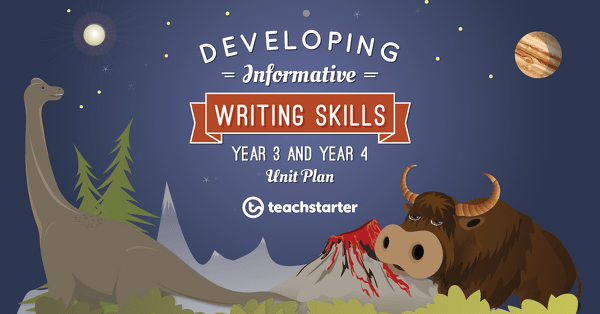
Applying Proofreading and Editing Skills
A 60-minute lesson in which students will learn and apply proofreading and editing skills.
- Plus Plan
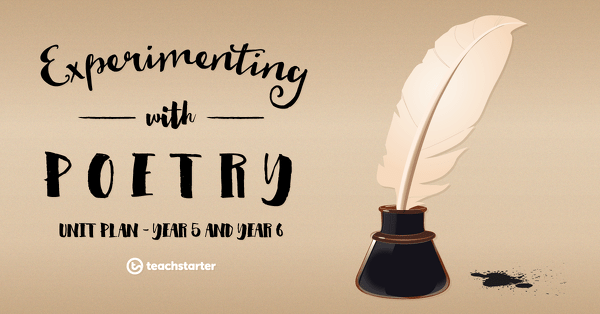
The Poet's Lament
A 60 minute lesson in which students will explore their preconceived ideas and attitudes towards poetry.
- Free Plan
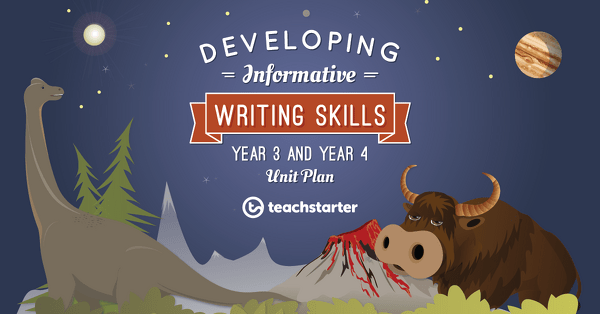
Using A Fact File - Shared Writing
A 60-minute lesson in which students will use a fact file and scaffolding sheet to write an informative text in pairs.
- Plus Plan
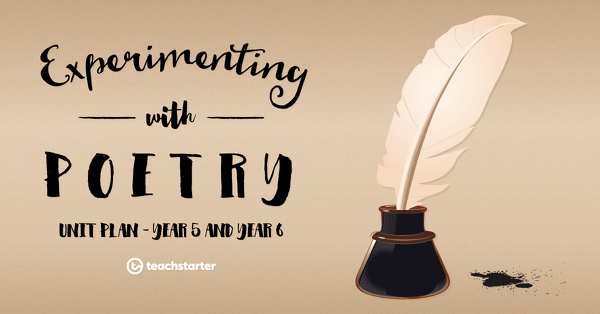
Poetry Defined
A 60 minute lesson in which students will develop an understanding of what constitutes poetry.
- Free Plan
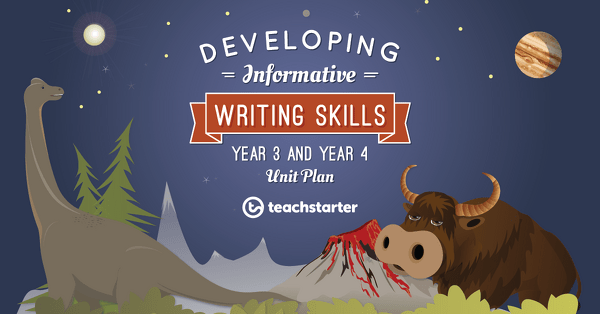
Writing an Informational Paragraph - Modeled Writing
A 60-minute lesson in which students will write an informative paragraph.
- Free Plan
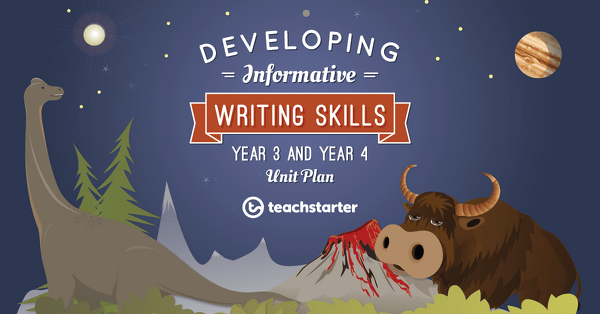
Building a Description Using Facts
A 60-minute lesson in which students will build a description of an animal, person or object using facts.
- Free Plan
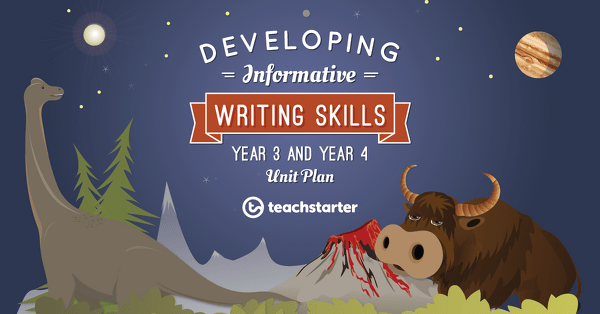
Informational Texts - Language Features
A 60-minute lesson in which students will identify and explore the language features found in informational texts.
- Free Plan
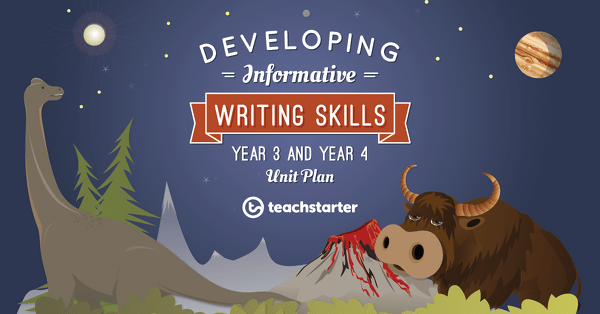
Informational Texts - Text Structure
A 60-minute lesson in which students will identify and explore the structure of an informational text.
- Plus Plan
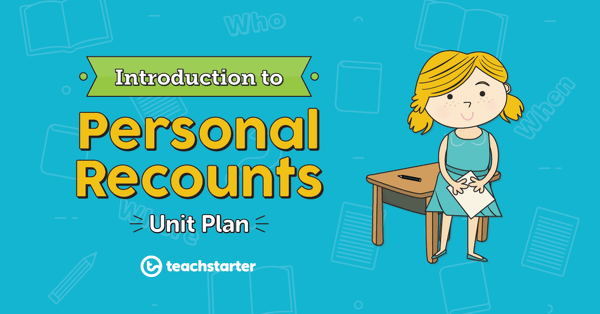
Personal Recounts - Modeled Writing
A 60 minute lesson in which students will jointly construct a simple personal recount about a familiar experience.
- Free Plan
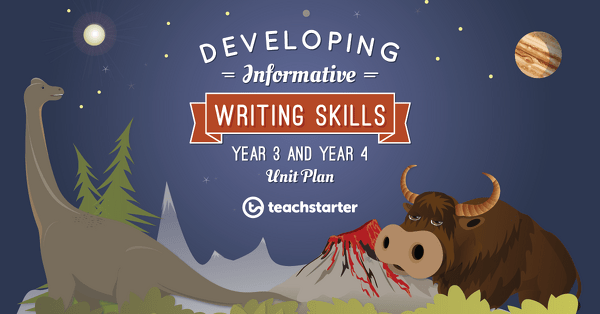
Fact or Opinion?
A 60-minute lesson in which students will identify the difference between a fact and an opinion.
- Plus Plan
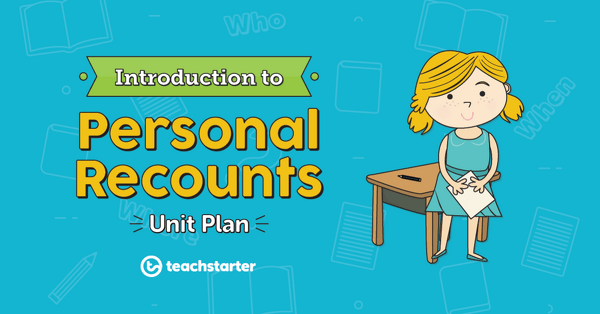
Adding Detail Using Emotion Words
A 60 minute lesson in which students will investigate how emotion words can add detail to a personal recount.